
2024 Doctoral Fellows

2024 Doctoral Fellows
Meet the 20 mental health counseling doctoral students named as 2024 NBCC Foundation MFP Fellows.
Mental Health Counseling Doctoral Fellows
Each MFP mental health counseling doctoral Fellow will receive $22,000 to support their counseling education and to recognize their commitment to underserved communities.
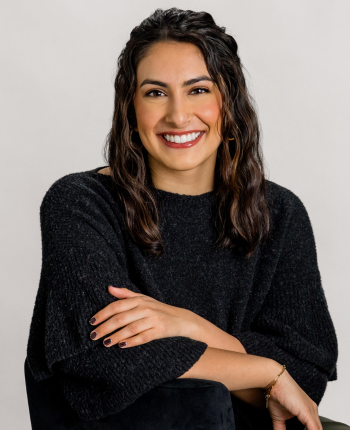
Sara S. Ahmed (she/her) – Winston-Salem, North Carolina
Sara S. Ahmed is a graduate of Wake Forest University. She is currently a doctoral student in the counselor education and supervision program at UNC Greensboro.
Sara is a Licensed Clinical Mental Health Counselor Associate (LCMHCA) in North Carolina and a National Certified Counselor (NCC). Her current clinical work involves providing interdisciplinary care for hospitalized patients who are navigating traumatic injuries and substance use concerns at Atrium Health Wake Forest Baptist. Her professional identity is strongly tied to advocating for underserved clients who are experiencing substance use concerns. Her research is focused on the implementation and evaluation of a mental health-focused harm-reduction training program within a hospital setting. Her research aims to assess the acceptability and knowledge of harm-reduction strategies among various health care providers to inform the development of more trauma-informed and patient-centered interventions for those with substance use disorders. This fellowship will help provide the training necessary for Sara to grow as a researcher, content expert, and educator. It will also support her goals in continuing to work with hospitals to identify innovations that will benefit the community and promote patient well-being.
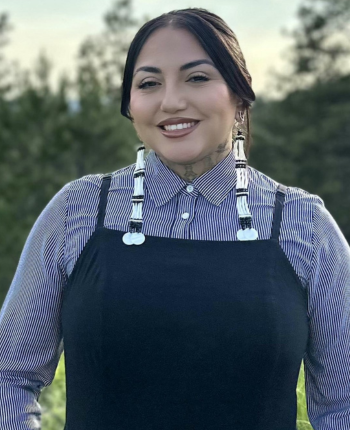
Charisse Bordeaux (she/her) – Rosebud, South Dakota
Charisse Bordeaux is a graduate of Bellevue University and the University of South Dakota. She is currently a doctoral student in the counselor education and supervision program at Adams State University.
As a proud member of the Sicangu Lakota Oyate, Charisse integrates Indigenous perspectives into her clinical work and research. Charisse’s experience includes providing trauma-informed therapy to Indigenous children, adolescents, adults, elders, and families in outpatient behavioral health and emergency care settings, as well as to court-ordered adolescents and adults in correctional facilities. Charisse is skilled in using play therapy and culturally integrated approaches to help children and adolescents process trauma, with a focus on creating culturally informed resources that honor traditional practices and address the unique needs of Indigenous communities. As a Qualified Mental Health Professional (QMHP) in South Dakota, she conducted suicide risk assessments and provided crisis intervention for individuals in emergency settings. This fellowship will support Charisse in developing her supervision and mentorship skills to empower Indigenous counselors. She is dedicated to advancing culturally aligned mental health practices that honor traditional healing and promote resilience within Indigenous communities.
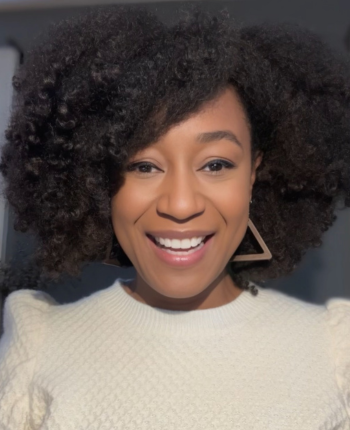
Melanie G. Calhoun (she/her) – Atlanta, Georgia
Melanie G. Calhoun is a graduate of Clark Atlanta University and Florida A&M University. She is currently a doctoral student in the counselor education and practice program at Georgia State University.
Melanie is dedicated to researching the intersections of racism-related stress, maternal mental health, and systemic inequities, with a focus on supporting Black perinatal mothers and the clinicians who serve them. She currently provides counseling to underserved populations through the Georgia Fund for Perinatal Mental Health, offering fully funded therapy sessions to perinatal individuals across the state. Her work focuses on helping clients heal from childbirth trauma, obstetric racism, and perinatal mood and anxiety disorders. As an NBCCF MFP Fellow, Melanie plans to expand her research on the experiences of Black counselors who serve Black perinatal clients, addressing the mental health impact of working in under-resourced communities. She is also committed to supporting perinatal mothers in rural Georgia, eliminating barriers such as childcare and transportation to ensure participants receive critical support. Melanie’s advocacy efforts include her role as Chair of the Board at the Atlanta Birth Center, where she developed peer-support initiatives and increased access to culturally affirming maternal care. Through this fellowship, she will advance her leadership and research, ultimately transforming care for underserved communities.
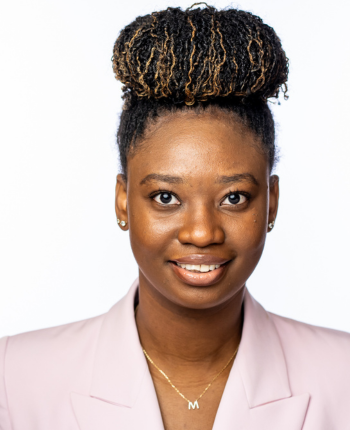
Maudeline Clervoix-Frank (she/her) – Fayetteville, North Carolina
Maudeline Clervoix-Frank is a graduate of North Carolina Agricultural and Technical (A&T) State University and Fayetteville State University. She is currently a doctoral student in the counselor education and supervision program at NC A&T.
Maudeline is a Licensed Clinical Mental Health Counselor Associate (LCMHCA), Licensed Clinical Addictions Specialist Associate (LCASA), and National Certified Counselor (NCC) with advanced training in Eye Movement Desensitization and Reprocessing (EMDR). She is passionate about fostering healing and resilience in diverse communities. Her research focuses on multicultural and trauma-informed approaches within the African diaspora, with a specific interest in understanding and addressing the differences in treatment-seeking reluctance between members of the African diaspora and African Americans. Through her work, she seeks to bridge cultural gaps and promote access to mental health care.
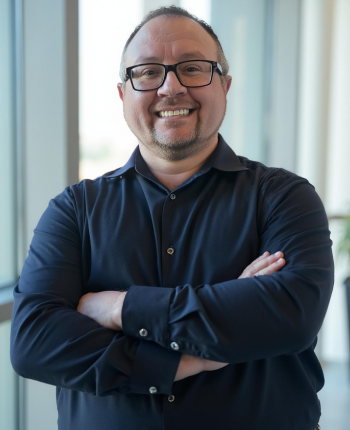
Nick DeJesus (he/his) – Raleigh, North Carolina
Nick DeJesus is a graduate of Campbell University, Mount Olive College, and Campbell University Divinity School. He is currently a doctoral student in the counselor education and supervision program at the University of the Cumberlands.
Nick is interested in the challenges faced by the LGBT youth and how to enhance awareness among counselors about the existing disparities to provide more comprehensive, evidence-based mental health care to this community. He is the Ethics Consultant and Board Investigator for the North Carolina Board of Licensed Clinical Mental Health Counselors, which expands his research interests in the ethical preparedness of associate licensed counselors who recently graduated from a CACREP-accredited program. Nick is a Licensed Clinical Mental Health Counselor Supervisor (LCMHCS) with a passion for working with graduate counseling students and newly licensed counselors. The fellowship will assist him in this passion by providing him with training and experiences to further increase and enhance his competency, knowledge, and clinical skills in leadership/advocacy, research, and counseling.
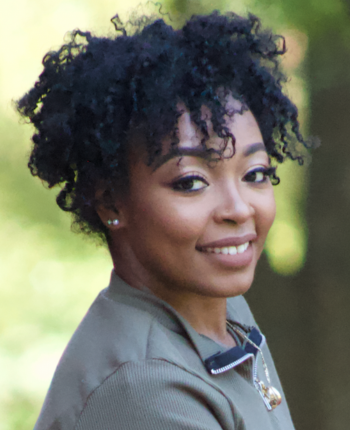
Kelci L. Ellis (she/her) – Corpus Christi, Texas
Kelci L. Ellis is a graduate of the University of Mary Hardin–Baylor, Texas A&M University–Central Texas, and Central Texas College. She is currently a doctoral student in the counselor education and supervision program at Texas A&M University–Corpus Christi.
Kelci is a National Certified Counselor (NCC) and a Licensed Professional Counselor (LPC) in Texas. The Texas Counseling Association awarded her the Outstanding Graduate Student for 2024 for her hard work and dedication to clinicians in training with clinical identity through journaling and tracking. She is a graduate assistant in the Department of Counseling and Educational Psychology. She helps master’s students work in integrated behavioral health services in Corpus Christi while assisting with the master’s clinical identity development. She profoundly enjoys developing her identity as a doctoral-level supervisor in the individual, triadic, and group formats she provides as a graduate assistant. Her research interests include the impacts of religious trauma on women with a focus on Black women’s mental health and identity, along with the clinical identity of underserved counselors in training. This fellowship will assist her in gaining more trauma training such as EMDR and brainspotting to address adversities and experiences among Black women and teens. She hopes to continue the work of identifying and implementing culturally responsive counseling interventions for those who survive religious and spiritual trauma.
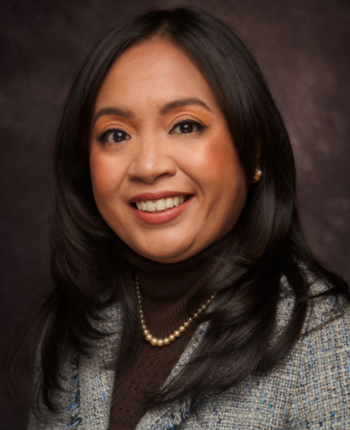
Olivia Fadul (she/her/siya) – Albuquerque, New Mexico
Olivia Fadul is a graduate of Jacksonville State University. She is currently a doctoral student in the counselor education and supervision program at the University of New Mexico.
Olivia is committed to innovative universal design for counseling intersectional communities. Her “helper” proclivity stems from her Filipinx roots. Its “Kapwa” philosophy of shared identity as an interwoven tapestry of social support inspires her research foci of equity, inclusion, and access. Being raised by rural and inner-city public health frontliners planted seeds that grew into her vision–her mission–for advocacy and accessibility. COVID-19’s toll on frontliners called her to found Olive Tree Counseling and Wellness telehealth to counsel them pro bono. Olivia employs traditional and innovative practices such as culturally responsive art and writing therapy. Her work supports her intersecting communities—Disability, Deaf & Hard of Hearing (DHH), BIPOC, and AAPI—and increases intersectional disability awareness through webinars, podcasts, and presentations. She founded UNM’s DHH Peer Support Group, is President of NM Counselor Advocacy & Social Justice, and advises Mayor Tim Keller’s Americans with Disability Act Council. This fellowship will help support her dissertation, training, and accessible presentations on building effective frameworks and practices for improving care, curriculum, and resources for intersectional communities, including a self-advocacy toolkit for college students with disabilities. Connecting with other NBCCF Fellows will invite exciting collaborations for improving accessibility by producing anti-ableist, anti-racist training.
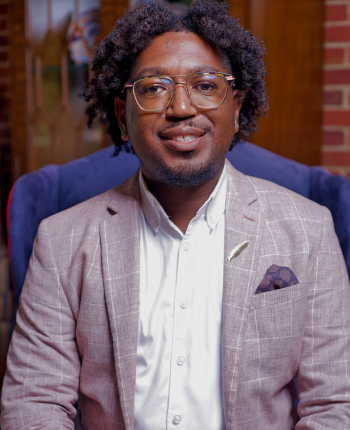
Brian Wesley Harrington (he/his) – Bentonia, Mississippi
Brian Wesley Harrington is a graduate of Mississippi College and Tougaloo College. He is currently a doctoral student in the counselor education and supervision program at the University of Mississippi.
Brian’s research focuses on integrating liberation counseling into school counseling frameworks in rural Southern schools, confronting systemic barriers, and advancing equity for underserved youth. A passionate educator, Brian draws inspiration from bell hooks’ assertion that “The classroom remains the most radical space of possibility in the academy.” He is committed to innovative teaching methods that not only inspire critical thinking but also empower future counselors to challenge oppression and create transformative change in their communities. As a former school counselor in the Mississippi Delta, Brian worked tirelessly with underserved populations, championing equitable academic opportunities, providing social-emotional learning resources, and establishing culturally responsive systems to nurture student success. His unwavering commitment to diversity and inclusion is deeply rooted in his own experiences and a resolute belief that every child deserves a safe and affirming space to thrive. Brian’s work lives at the intersection of education, youth mental health, and social justice. He sees this fellowship as a catalyst to expand his research, deepen his impact, and collaborate with like-minded leaders to transform behavioral health services for underserved communities.
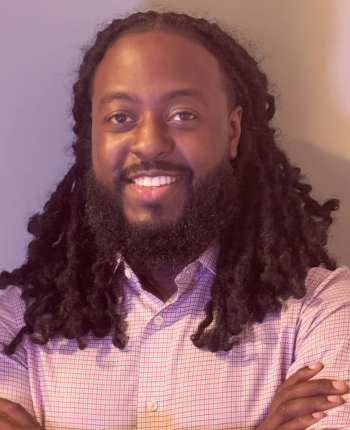
Dantavious Hicks (he/his) – Columbus, Ohio
Dantavious Hicks is a graduate of Johns Hopkins University and the University of North Carolina at Charlotte. He is currently a doctoral student in the counselor education and supervision program at Ohio State University.
Dantavious is a National Certified Counselor (NCC), Licensed Clinical Professional Counselor (LCPC) in Maryland, and Licensed Professional Clinician Counselor (LPCC) in Ohio. He has experience counseling culturally diverse individuals across the life span in community, school-based, and private practice settings. He is also an Adjunct Professor at the University of Dayton and Field Experience Coordinator for master’s students in his graduate associateship at Ohio State University. Dantavious’ primary research aim examines how counselors broach racial, ethnic, and cultural (REC) dimensions embedded in clients’ presenting concerns. Notably, he codeveloped a 3-month pilot intervention, funded by the National Institute on Drug Abuse (NIDA), examining REC concerns with Black men in substance use treatment. His work also focuses on socially just counselor education and supervision, school-based counseling, and culturally responsive education. Recently, he has expanded his research to focus on the mental health needs of African Americans living with a chronic illness. Dantavious has received several accolades, including the North-Central Association for Counselor Education and Supervision’s 2024 Emerging Leader Award and 2020 Student Excellence Award at Johns Hopkins University. This fellowship will offer him the opportunity to expand his leadership, advocacy, and professional skills while building community with a respected network.
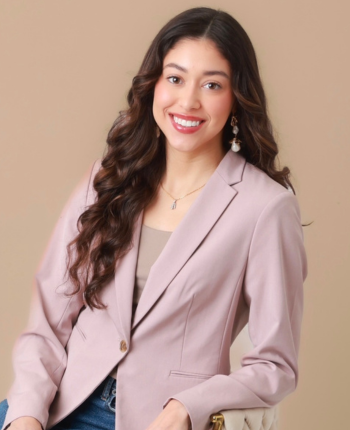
Allison Joyal (she/her) – Ingleside, Texas
Allison Joyal is a graduate of Texas A&M University–Corpus Christi, where she is currently a doctoral student in the counselor education and supervision program.
Allison received the 2022 NBCCF MFP Master’s Fellowship. She is an LPC-Associate from Corpus Christi, Texas, where she serves children, adolescents, and mothers. Beyond clinical work, she regularly volunteers with Go Team Therapy Dogs in her community. This doctoral fellowship will leverage her goals to increase access to culturally responsive and trauma-informed Adlerian play therapy and perinatal mental health (PMH) services, particularly for the Latino population. Her goal is to partner with local professionals to increase awareness and reduce disparities for Latina mothers in South Texas while also completing training to become a certified PMH provider. She will also train to accomplish her goal of becoming a Registered Play Therapist. As a 2024 Leadership Academy graduate, she contributes to initiatives aimed at improving cultural and social diversity with the Association for Play Therapy. Allison will advocate for and work with survivors of child sexual exploitation and abuse trauma through clinical and research endeavors. Currently, she is examining predictors of compassion satisfaction and fatigue among play therapists working with this population. Upon graduation, she intends to increase child-adolescent counseling competencies in CACREP programs and contribute research on culturally responsive and trauma-informed Adlerian Play Therapy and Latina PMH care.
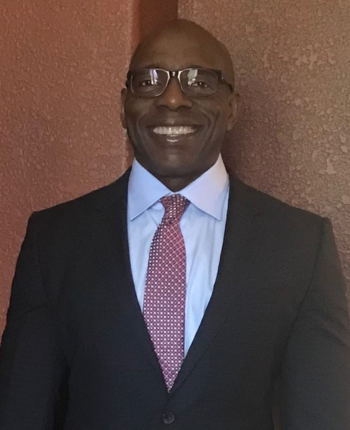
Mphatso Khoza (he/his) – The Woodlands, Texas
Mphatso Khoza is a graduate of Liberty University, the University of the West Indies, and the University of Texas. He is currently a doctoral student in the counselor education and supervision program at Oregon State University.
Mphatso’s primary research focuses on Black racial identity formation among African-descended West Indian immigrants in the United States, particularly in Houston and Miami. As a West Indian immigrant from Trinidad and Tobago, he brings personal experience and professional insight to this work. His research examines how this population navigates racial identity within the American context, especially following significant sociopolitical events like George Floyd’s murder in 2020. Currently practicing at Man 2 Man Counseling Center as a Licensed Professional Counselor Associate (LPCA) and National Certified Counselor (NCC), Mphatso serves predominantly Black individuals and families and other immigrant communities. The fellowship will help to create greater margins of affordability for care, particularly for uninsured clients who often face the barrier of cost. Mphatso also maintains a secondary research interest in the intersection of generative artificial intelligence (AI) and multicultural considerations in counseling, drawing from his engineering background. He aims to examine how AI technologies can equitably serve diverse populations while addressing potential biases and accessibility concerns. His goals include developing culturally responsive counseling approaches for Caribbean and African immigrant populations, publishing research findings, creating community-based programs, and establishing specialized counseling programs for Black immigrants dealing with racial identity issues.
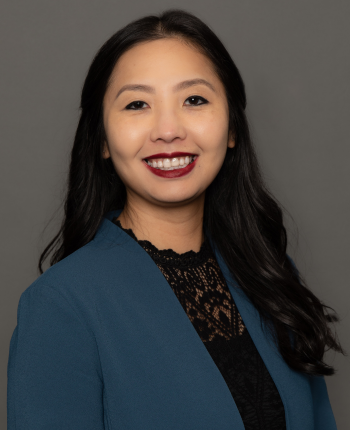
Bonnie Kuo Lucas (she/her) – Falls Church, Virginia
Bonnie Kuo Lucas is a graduate of the University of San Diego and the University of California–San Diego. She is currently a doctoral student in the counselor education and supervision program at the University of the Cumberlands.
Bonnie is a Licensed Professional Counselor in Virginia and Washington, D.C. Her current research interest is exploring and addressing the underrepresentation of Asian Americans, Native Hawaiians, and Pacific Islanders (AANHPI) in counselor education. As a doctoral candidate, Bonnie will dedicate her dissertation to exploring the underrepresentation of AANHPI counselor educators. Bonnie is the Coordinator of Graduate Clinical Experiences and the training clinic at Marymount University in Virginia. She oversees the training clinic’s operation and provides clinical supervision for counselors-in-training working with medically underserved populations. She also serves as an Adjunct Professor, engaging master-level counseling students in various course content with a multicultural perspective. Bonnie also provides counseling to individuals of ethnic and cultural minorities; many have intersectional underserved identities. The fellowship will support her in her doctoral education, enabling her to pursue her research, connect with mentors and peers, and acquire training and tools to bridge the gap in representation in counselor education and supervision.
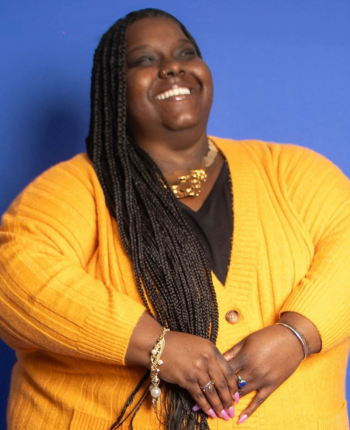
Chalayna Lenelle Landers (she/her) – Memphis, Tennessee
Chalayna Lenelle Landers is a graduate of Texas A&M University–Corpus Christi and the University of Southern Mississippi. She is currently a doctoral student in the counselor education program at Texas A&M University–Corpus Christi.
Chalayna is interested in researching the essence of Black joy and hope and how they contribute to the strength, resilience, and psychological, mental, and emotional sustainability of the Black community in the face of adversity. She is a National Certified Counselor (NCC) and an LPC Associate (Texas). She provides individual, couples, and group therapy to BIPOC-identifying clients utilizing affirmative and compassion-focused therapeutic approaches. The fellowship will assist Chalayna in her hopes of starting the pilot of her Black girl’s empowerment group/program, Run the World, and eradicating any potential barriers for the girls whom the group will serve. Through Run the World, Chalayna will create a space where Black girls don’t only discover their magic but essentially recognize that they ARE magic. This fellowship will help transform her dream and mission of establishing more initiatives, experiences, and programming to promote hope, healing, joy, and community to alleviate the uneasiness that members of the Black community often feel in pursuing therapeutic services. It is a pivotal puzzle piece connecting her to the exploration, professional development, and supportive networks and opportunities she needs to strengthen her developing identity as a counselor, counselor educator, and agent of change.
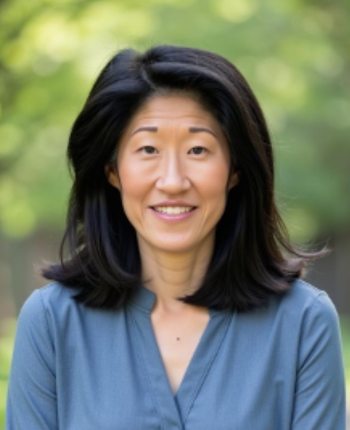
Nancy Lee (she/her) – Aurora, Colorado
Nancy Lee is a graduate of the University of Denver and the University of Chicago. She is currently a doctoral student in the counselor education and supervision program at Adams State University.
Nancy works in private practice, where she supports individuals with high levels of anxiety, stress, and trauma. Her clinical approach integrates evidence-based practice, third-wave cognitive behavioral therapies, and multiculturalism. Nancy is an Adjunct Professor in the clinical mental health counseling program at Naropa University. Her clinical, academic, and community contributions stem from her values of humanity and inclusivity. Her dissertation research examines the relationship between compassion and cultural humility in mental health care. Nancy’s public service reflects her perspectives as a mental health advocate, neurodiversity-informed parent, and Korean-American first-generation college graduate. Her advocacy addresses the needs of Asian American and Pacific Islander individuals and people with intersectional identities. The fellowship will support Nancy’s professional growth and increase her social impact.
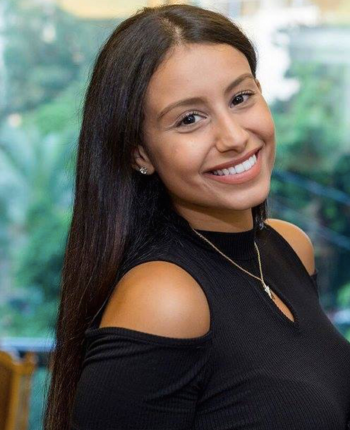
Tamara Makki (she/her) – Orlando, Florida
Tamara Makki is a graduate of the University of San Diego and the University of California–San Diego. She is currently a doctoral student in the counselor education and supervision program at the University of Central Florida.
Tamara’s research interests include exploring gender-based violence within Islamic communities, developing culturally relevant interventions for Muslim women experiencing abuse, and addressing the impact of trauma on mental health within the Islamic community in the United States. She focuses on creating equitable mental health practices that integrate faith-based perspectives and culturally competent care. Her work emphasizes improving access to mental health resources tailored to the unique needs of Muslim women navigating systemic and interpersonal challenges. In her clinical work, Tamara serves Arab and Muslim clients, addressing issues such as identity development, anxiety, trauma, and cultural expectations. Through her involvement with the Muslim Women’s Organization, she raises awareness and advocates for improved access to culturally and religiously sensitive resources for women experiencing violence. Tamara envisions this fellowship as an opportunity to expand her research, collaborate with professionals addressing systemic inequities, and further advocate for underserved groups. She aims to enhance her skills in community engagement and professional advocacy while broadening her understanding of gender-based violence globally. This fellowship will also support her goal of developing educational interventions that bridge the gap between cultural values and mental health practices to empower Muslim women facing violence or discrimination.
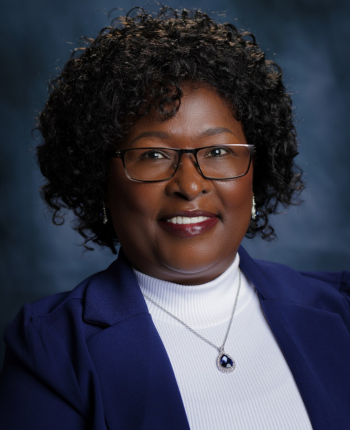
Jael K. Omega Mahasi (she/her) – Peoria, Illinois
Jael K. Omega Mahasi is a graduate of Bradley University and the University of Nairobi. She is currently a doctoral student in the counselor education and supervision program at the University of the Cumberlands.
Jael is an Affiliate Counseling Instructor at Bradley University and a counseling Teacher Assistant at the University of the Cumberlands. Her research interests include mental health for Black males, multiculturalism, social justice, and advocacy. She is passionate about creating, strengthening, and cultivating brave spaces in communities where they can freely discuss and seek mental services, specifically, working toward understanding how the lived experiences of Black males impact their help-seeking behavior and how practitioners, educators, and researchers can collaborate to co-create and staff such brave spaces. She is committed to amplifying the voices of underserved populations through collaborative efforts. She volunteers in a weekly mentorship program that serves an underserved population, providing socioemotional support and tutoring to students from preschool through eighth grade. Jael also plans to provide mental health resources and training at a local center serving the inner city.
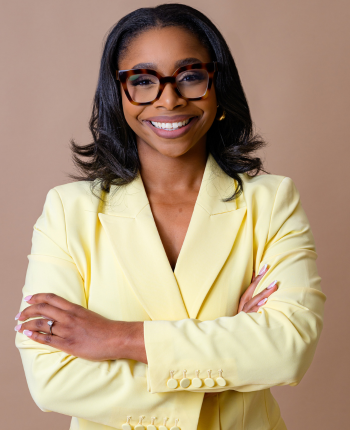
Kortnie J. Parks (she/her) – Hyattsville, Maryland
Kortnie J. Parks is a graduate of Marymount University and Christopher Newport University. She is currently a doctoral student in the counselor education and supervision program at George Washington University.
Kortnie is a Licensed Professional Counselor in Washington, D.C., and Maryland. She is inspired by the women who came before her and the village of women who uplift her. She currently serves as a Senior Staff Clinician in university counseling, specializing in BIPOC wellness, and is the owner of Beneath the Surface Therapy, a private practice dedicated to supporting the mental well-being of Black women through culturally responsive, trauma-informed care. Kortnie also serves as the President of her local Chi Sigma Iota (CSI) chapter, where she works to promote excellence in counseling through leadership, advocacy, and professional development. Her research focuses on the psychological well-being of Black women, addressing the effects of microaggressions, racial bias, and intergenerational trauma. This fellowship will provide Kortnie with the opportunity to collaborate with like-minded professionals committed to advancing equity in mental health care. It will also allow her to deepen her research on intergenerational trauma and systemic barriers, translating findings into practical strategies such as culturally relevant workshops, trauma-informed interventions, and accessible community resources. Additionally, she aims to improve retention and success for underserved students in counseling programs by developing mentorship initiatives and support systems tailored to their needs. Inspired by the legacy and strength of the women in her life, Kortnie is committed to fostering an inclusive mental health landscape that uplifts Black women and empowers the next generation of counselors and clients.
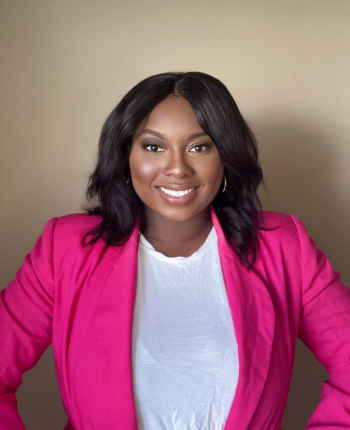
Jasmine Reynolds (she/her) – Cookeville, Tennessee
Jasmine Reynolds is a graduate of Troy University and the University of South Alabama. She is currently a doctoral student in the counseling and supervision program at Tennessee Tech University.
Jasmine is a certified professional school counselor with training in infant mental health. Her work spans school-based and clinical settings, focusing on adolescents and adults. Her experience includes working with incarcerated populations to better understand the school-to-prison pipeline. Jasmine’s research examines the impact of post-incarceration on families, particularly fathers, and explores how school counselors and clinicians can support children and adolescents affected by incarceration. She integrates feminist and relational-cultural approaches to address systemic inequities and foster resilience among underserved populations. Her work emphasizes honoring diverse lived experiences and promoting relational resilience. Committed to social justice, Jasmine also investigates the unique challenges faced by rural populations, advocating for equitable policies and access to mental health resources. Through her research, she seeks to bridge theory and practice, equipping counselors to create spaces for connection, empowerment, and systemic change. This fellowship will help enhance her clinical skills and research expertise.

Diane Rodriguez (ella/she/her) – Williamsburg, South Carolina
Diane Rodriguez is a graduate of Troy University and Park University. She is currently a doctoral student in the counselor education and supervision program at Virginia Commonwealth University.
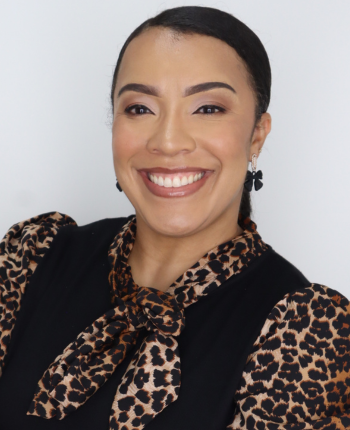
Jakara Scurry (she/her) – Raleigh, North Carolina
Jakara Scurry is a graduate of North Carolina Central University and Washington Adventist University. She is currently a doctoral student in the counseling and counselor education program at North Carolina State University.
Jakara is interested in researching how counselors are trained in spirituality and religion and how these beliefs help individuals cope with and overcome mental health and substance use challenges. She is a Licensed School Counselor, Licensed Clinical Mental Health Counselor, Licensed Clinical Addiction Specialist Associate, National Certified Counselor, and a Certified Career Counselor. She is currently a Graduate Assistant at the N.C. State University Counseling Center, working primarily with students with substance use concerns and focusing on harm reduction. Through personal and work experiences, she has developed a passion for advocating for justice-involved individuals and those formerly incarcerated to improve access to quality mental health services. This fellowship will provide Jakara with professional development opportunities to help improve her knowledge and clinical skills to work with these populations and other underserved communities. The fellowship with also help enhance her leadership skills, provide access to mentorship, and assist her as she completes her dissertation research on counseling students’ perceptions of spirituality and religion training within the curriculum of counselor education programs.
